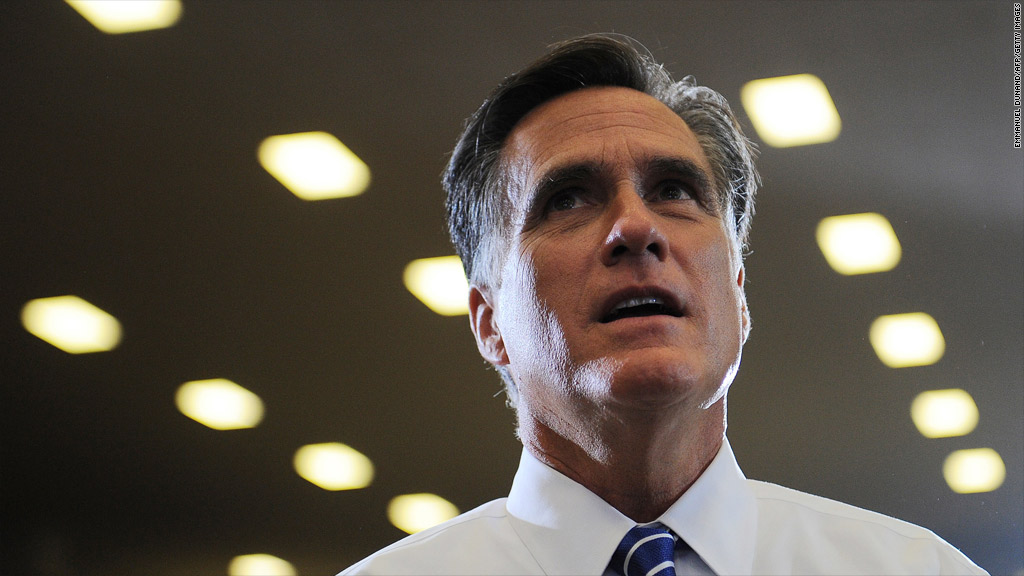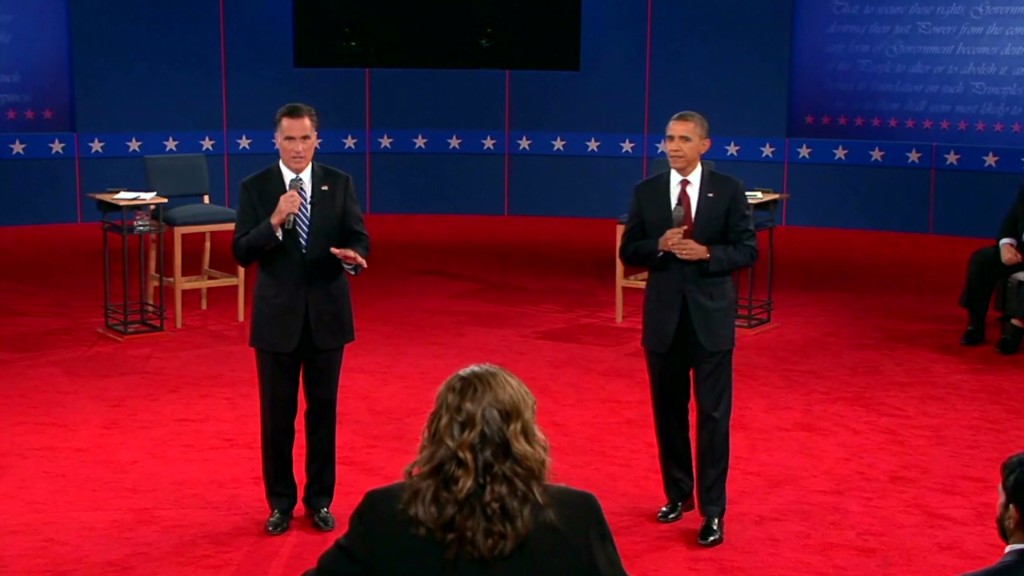
Among the questions about how Mitt Romney would pay for his $5 trillion tax plan is whether he would curb the biggest tax break of all: the largely invisible tax savings workers get when their employer provides health insurance.
The "health care exclusion" applies to the money a company contributes to help pay for an employee's coverage; that money is considered income to the worker, and the IRS treats it as tax-free.
And employers pay the lion's share of health insurance costs. In 2012, the average family plan cost $15,745, according to the Kaiser Family Foundation. Of that, employers paid $11,429.
Roughly 160 million Americans benefit from the break. And it will cost federal coffers more than $150 billion in revenue annually going forward. That puts it at the top of the more than $1 trillion in federal tax breaks.
But most people don't realize they benefit from the exclusion because they don't have to report it on their tax returns. (Starting this year, employers will include the value of workers' health insurance on their W2s for informational purposes only).
So where does Romney stand on the exclusion? It appears he is leaving his options open.
On the one hand, Romney has spoken about possibly putting a dollar-cap on itemized deductions to help pay for his plan. His campaign added that such a cap could be done in conjunction with curbs on, among other things, the health care exclusion. The curbs would primarily affect the wealthy.
Or, the campaign said, he could choose to leave the health exclusion exactly as is.
Related: The top 5%: Romney defines rich
In either case, Romney has committed to offering an equivalent tax break to those who buy insurance on their own, the campaign said. Right now, the only people who enjoy a tax break for buying health insurance are those who do so through their employer.
How would Romney level the playing field? There are a lot of ways to do it, "but there's not a fully formed plan," a Romney policy official said.
Of course, how it's done will determine whether it helps to pay for his tax plan or simply increases its cost.

Adding a new tax break for those buying insurance on their own, on top of the current exclusion for employer-based plans, will cost more money.
If instead Romney chose to offer the same tax break to everyone -- regardless of how they buy their insurance -- there are ways to reduce the hit to federal coffers and help pay for his plan.
For example, he could replace the exclusion with a tax credit.
Right now, the exclusion is unlimited. But a tax credit, which is a dollar-for-dollar reduction of one's tax bill, could be set up so it limits the benefit.
How? If the credit is set at a low enough rate, or limitations are placed on the amount subject to the credit, the value of the health tax break for many people could be reduced. And no one more so than the rich. That's because they pay the highest tax rates and so now benefit most from today's unlimited, tax-free exclusion.
But without firmer details about the direction Romney would choose, it's impossible to say how much of a role, if any, America's biggest tax break will play in his promise to pay for his $5 trillion tax plan.


